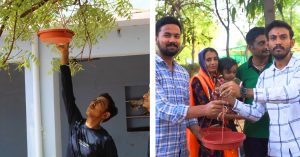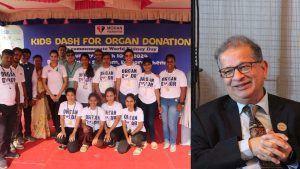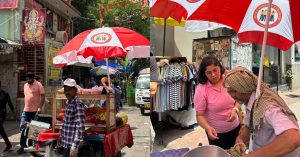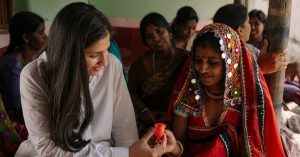‘Can’t See Them Sleep on Streets’: 2 Friends & 8 Homes Help 2000 Kids Living With Cancer
Ankeet Dave and Girish Nair, founders of Access Life, were deeply affected by the pain of infants undergoing chemotherapy. They started helping the patients’ families with shelter, food and transport in major Indian cities. This is their story of empathy and hard work.
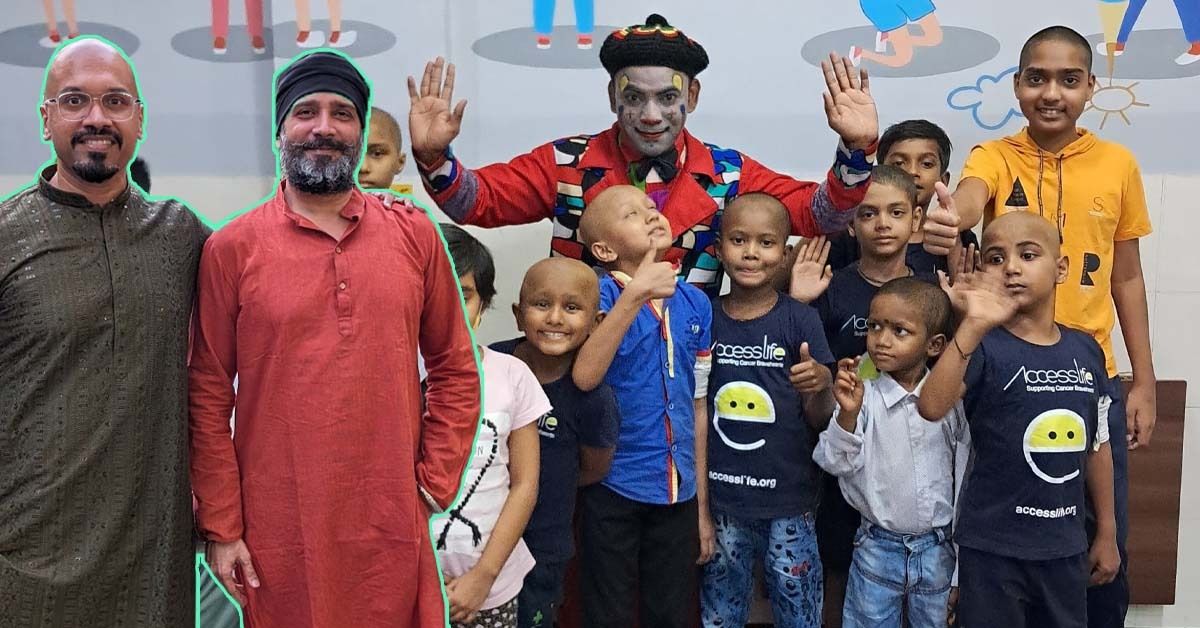
It is the wee hours of the morning and Mumbai is just beginning to open its eyes.
In a bungalow in the heart of the city’s Chembur suburb, a group of people are gathered around the breakfast table, their eyes puffy and swollen. Sleep has been elusive.
When little Vanshika felt ill following her chemotherapy session, it wasn’t only her mother who stayed up through the night. The others all chipped in. Thus the tired eyes.
This morning, everyone’s glad that Vanshika is feeling better. As breakfast is doled onto their plates, the stress of the last few days lies forgotten.
At first glance, anyone would assume the group is a ‘close-knit’ family. “You can call them that,” says Ankeet Dave, one-half of the duo that started Access Life in 2014.
Since its inception, the not-for-profit organisation has been providing multidisciplinary supportive care to families who leave their homes to head to various hospitals across the country for their child’s cancer treatment which often spans months or years.
During this time, Access Life’s eight centres — three in Mumbai and one each in Pune, Ahmedabad, Chandigarh, Bengaluru and Manipal — witness love at its best, notes Girish Nair, the other half of the duo behind this noble initiative.
“It is beautiful to watch the lines between religion, language and caste blur, as the families unite to fight one battle against a faceless opponent. The topmost priority is the recovery of the children. Everything else comes secondary,” he notes.
Girish and Ankeet see relief etched on the parent’s faces when they are told that they will be sharing the space with others going through the same ordeal. It is an undoubted anaesthetic to what would otherwise be a lonely and harrowing experience.
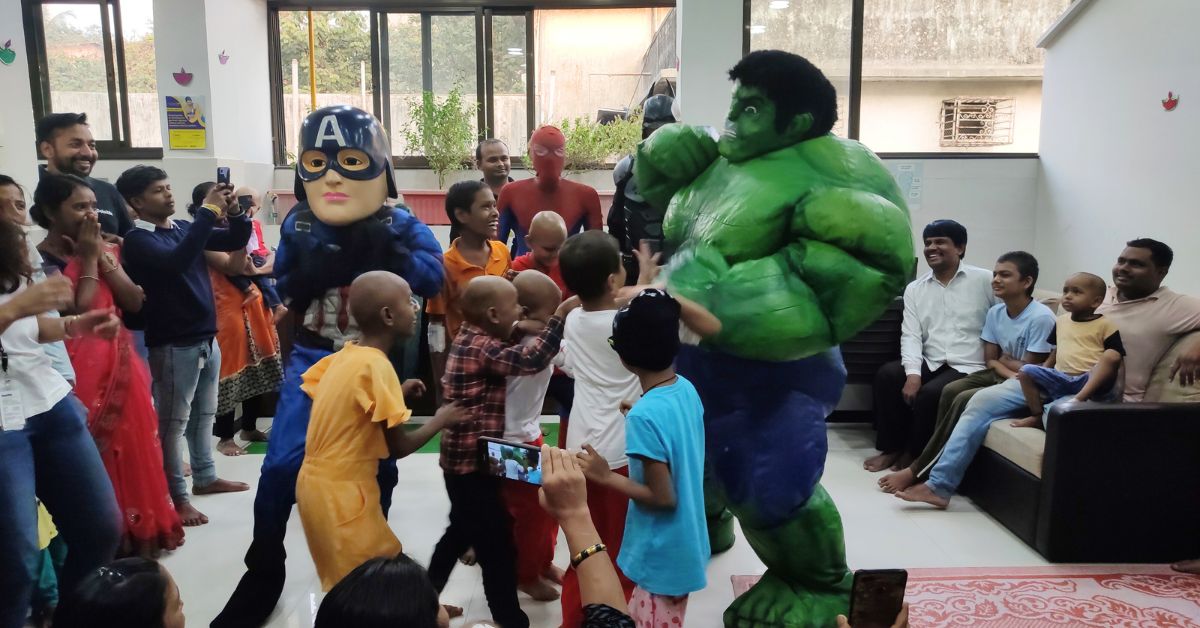
Take for example Vanshika’s mother.
Once wrought with fear when her daughter would develop chills and fever during her chemotherapy sessions, she now consoles the other mothers. “It is just the medicines taking a toll. It will pass off,” she can be heard saying.
Meanwhile, Vanshika is a little ray of hope to the other children in the early stages of cancer treatment. They return her smile. If she could get better, they know they will too.
For many families like Vanshika’s, the centre has been a staunch support through their toughest times. When they arrived in Mumbai for the first time in December 2023, their minds were clouded with uncertainty.
It was surreal to think that just a year-and-a-half ago, their lives had been a picture of happiness when Vanshika was born. But this joy had been substituted with worry ever since her mother spotted a slight swelling on the one-year-old’s stomach. A host of doctor’s appointments awaited them. Each claimed the same thing — Vanshika had a tumour. She needed surgery.
The “life-altering” diagnosis saw the family head to the famed Tata Memorial Hospital in Mumbai. The hospital provides excellent treatment to cancer patients at a subsidised rate, making it the first choice of many.
This high turnover means parents often have to wait for hours to get their child a consultation. Bear in mind that these are people who have left their lives in rural India behind and do not have a place to live. Like them, Vanshika’s family knew that in all probability the sidewalk outside the hospital would be their home for the next few months.
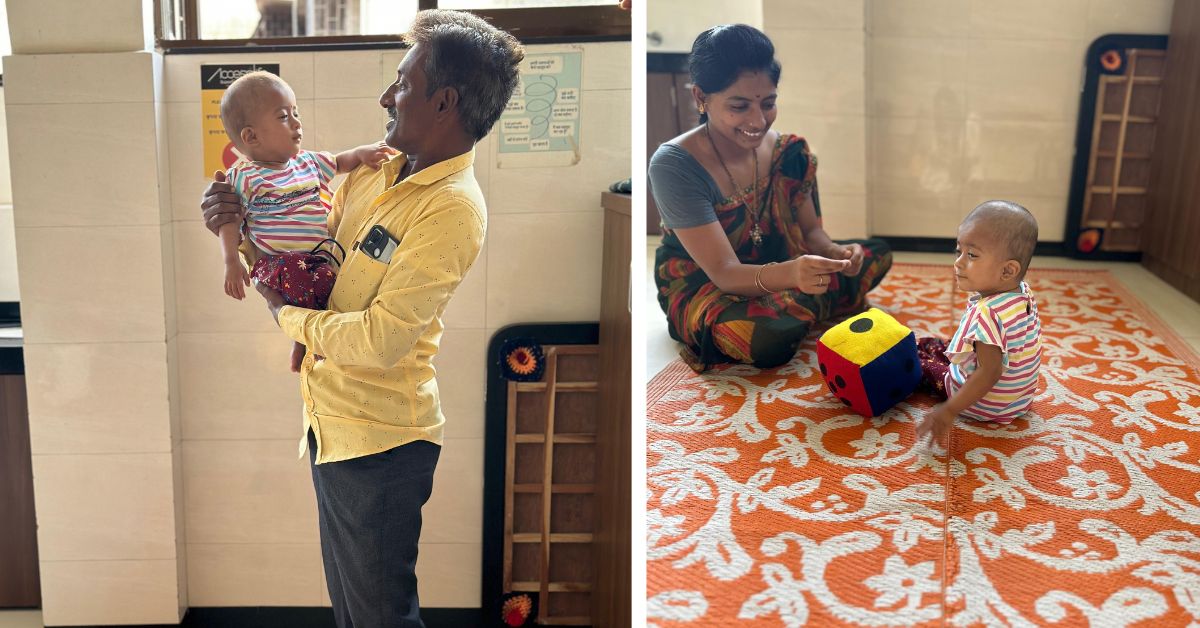
But then a social worker told them about a bungalow in Chembur which would host them for free. To date, the family stands indebted to Ankeet and Girish for giving them a roof and so much love as they dealt with life’s curveballs.
It all began with a thought
The story of Access Life is a corollary of the ‘butterfly effect’, you’d agree. In 2012, a finance management professional (Girish) and a media professional (Ankeet) met during a project. The Mumbai-based duo soon became fast friends.
Their conversations revolved around doing something in the volunteering space and it was during one of their visits to a paediatric cancer hospital that Girish and Ankeet saw month-old babies being administered heavy chemotherapy drugs.
This “eye-opening” experience fuelled in them a desire to reach out. “We just wanted to do something nice for children who had cancer,” Girish shares. While donating beds and helping with funds was initially what they considered, an interaction with a social worker introduced them to a much larger issue that needed attention — housing.
She pointed to the scores of people who opt for a nomadic lifestyle outside the hospital while their kids undergo treatment. “They don’t have any other option,” she said. The duo was appalled. As Girish points out, “This shouldn’t be the case. Chemotherapy significantly compromises the immunity of the children. Imagine living on the street during a time when they should be given utmost care. It increases the chances of secondary infection.”
Further conversations with these families revealed that these uncomfortable living conditions compound their other stresses, eventually leading to them abandoning the treatment altogether.
“If only there were a place for these parents to live while their children recovered.”
And with this thought, Access Life was born.
The idea of doing something so noble was exhilarating. But Ankeet and Girish hadn’t accounted for their lack of knowledge in the development sector. “As we began to understand, it wasn’t going to be as easy as renting out a place for these people to live and then going back to our jobs,” Ankeet says.
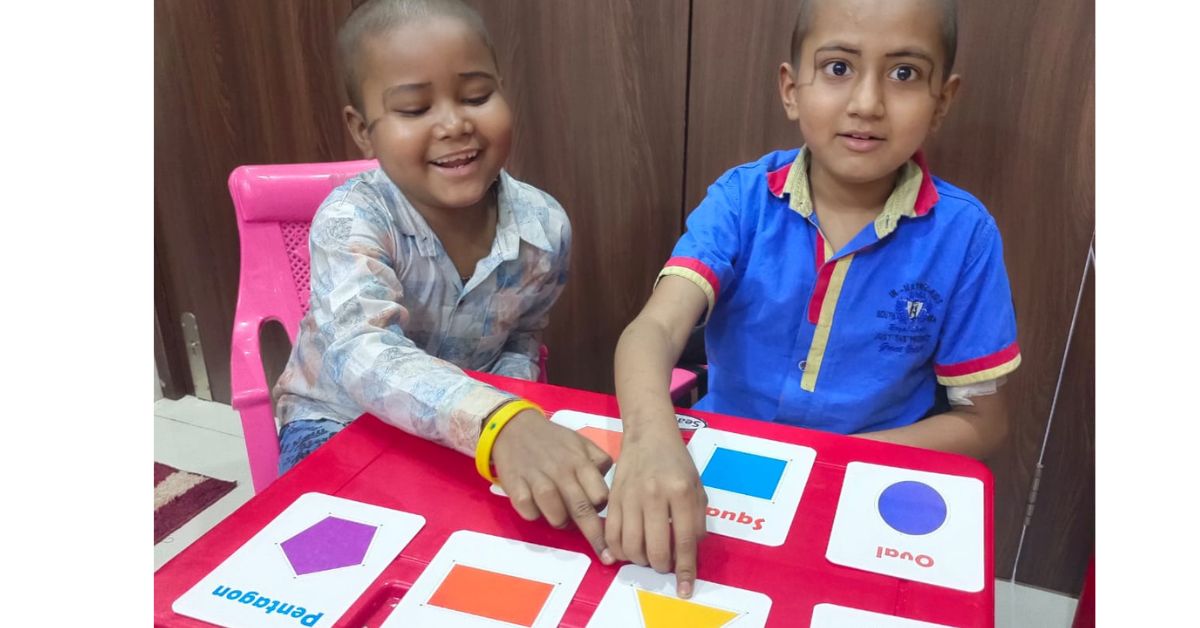
This first dawned on the duo when their request for a space was met with a series of rejections. But they kept knocking on doors until nine months later, one finally opened. Today, the Gurunanak Centre in Chembur is still operational and the one they are most proud of.
One would wonder how two guys in their thirties — a phase of life when one is getting settled — raised funds for a non-profit. “Girish sold one of the flats he owned,” Ankeet says, noting that his friend shies away from mentioning this.
Eight families find their home
Through the years the Access Life centres have been privy to miracles. They watch closely as bonds are formed, and friendships are forged as children get better and go home. As new families arrive, they continue to hope that life will be as kind to their child.
Currently, 140 families live across the centres while a total of 2,000 kids have benefitted through Access Life’s initiatives. No matter how tough the day has been with chemotherapy sessions and drug trials filling their schedules, the parents and children look forward to the evenings.
Laughter and joy stop by at the centre, sometimes in the form of events that are held, other times in the form of toys and games that are distributed.
Disease does not dictate the terms at these centres, hope does.
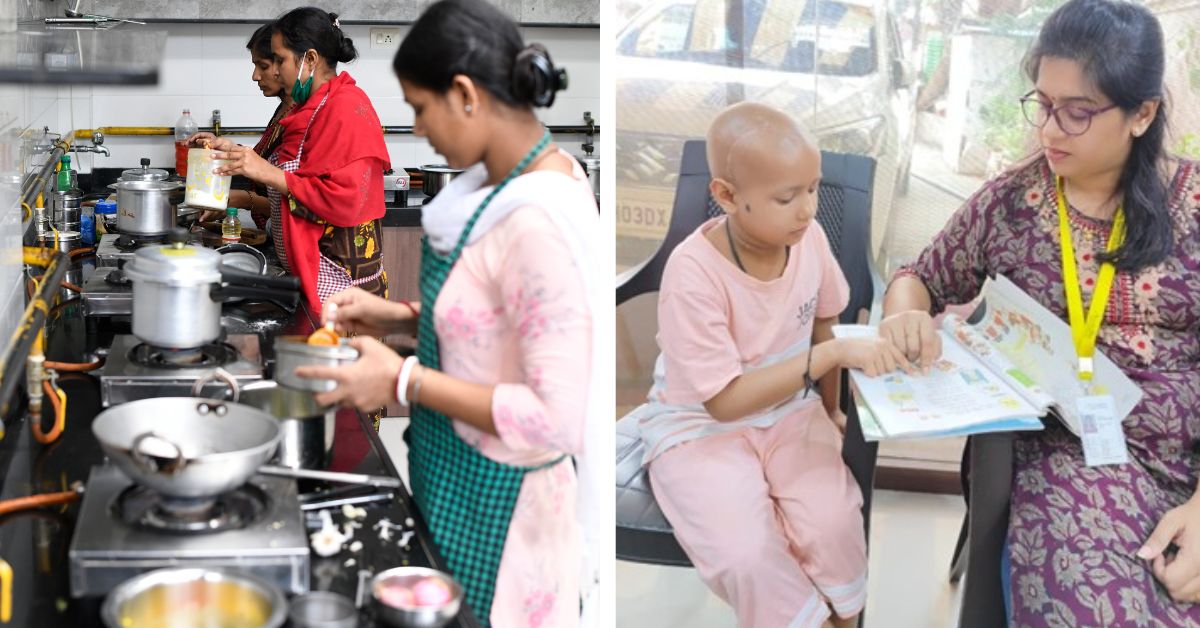
It is heartwarming, Ankeet and Girish express, that the parents who were once lost in the chaos, are now confident that they can overcome anything. The duo urge them to make themselves at home and recall the initial days of setting up — figuring out which utensils they must have; which amenities are needed and finding a caretaker as well. It was a learning curve, not just for the duo but also for the families.
“They come from different parts of rural India where they cook using firewood. Some of them have never operated a gas. So, we had to teach them how to do it,” says Ankeet. The duo still recall when on the first day, one parent enquired if there was farmland nearby. “Obviously, there wasn’t. We then understood that he wanted to relieve himself but didn’t know how to use the bathroom in the house, which we quickly taught him.”
A safe space for the little bravehearts
The families settled in and the friend duo was happy that accommodation was a big load taken off their minds. But, the months ahead revealed the necessity of a holistic solution. In time, they began supplying groceries to the centre, encouraging the families to cook according to their dietary and regional preferences and also launched the transport arm of Access Life.
Elaborating on this, Ankeet says, “We realised that these families did not have enough money to go to and fro from the hospital to the centre. While they would resort to public transport, this wasn’t ideal for the children who were undergoing chemotherapy.”
Today, their private vehicles ensure the children and their parents can travel in comfort.
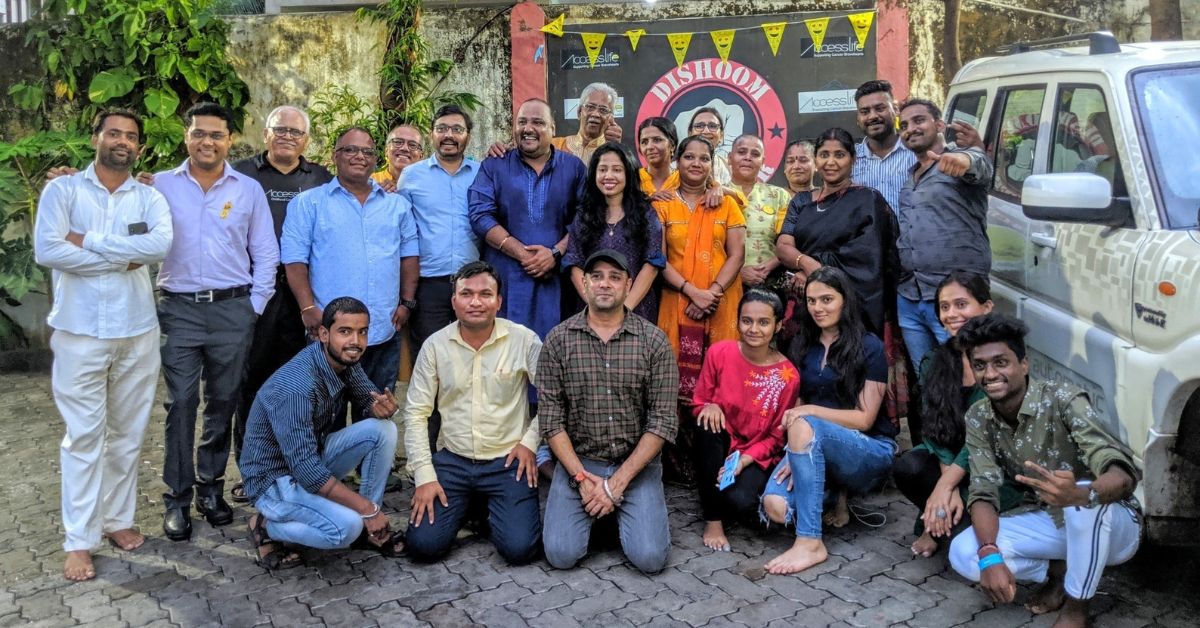
While the families are cared for well here, it is important to note that they have a life waiting for them back in their respective villages. What happens to that?
This is where Access Life’s Emotional and Psychological Support (EPS) programme comes in. It equips families with practical ways to deal with the distress created by the disease. It’s about keeping the children engaged with educational sessions so that they don’t miss out on school, and teaching the parents new skills that could be a source of livelihood when they return to their respective hometowns after their child’s long treatment, the duo explains.
Pointing to one example, Ankeet recalls the example of a parent who used to run a puri bhajiya (a fast food stall) stall in Siliguri, West Bengal.
“When he came to live at our centre for his child’s treatment (which lasted six months), he had to sell his cart back home. He was worried about what would happen to his livelihood. But during his time here, he learnt how to make vada pav and started selling! The business was a huge success,” he adds.
Girish pitches in with another heartwarming story. “One of the parents was a soldier who quit and came to our Mumbai centre when his child was admitted. But in the weeks that followed, he saw how well his son was being cared for at the centre. That enabled him to go back to his duty peacefully.”
While the duo encourages both parents to stay with the child at the centre, they are aware that this is not always possible and are always willing to make exceptions. “If there is a family that has two kids and one is admitted here and the other is an infant, we ask the family to bring both kids so they can all live here,” Girish shares. They go to great lengths to ensure that the comfort of the families trumps everything else.
As they navigate this challenge, it is reassuring to know that someone is looking out for them.
Cancer warrants a certain trepidation, a certain tiptoeing, a certain foreboding. But the laughter and happy chatter at the Access Life centres, disagree. For anyone looking in, there is only hope to be found here.
You can donate to their cause, here.
Edited by Padmashree Pande.
If you found our stories insightful, informative, or even just enjoyable, we invite you to consider making a voluntary payment to support the work we do at The Better India. Your contribution helps us continue producing quality content that educates, inspires, and drives positive change.
Choose one of the payment options below for your contribution-
By paying for the stories you value, you directly contribute to sustaining our efforts focused on making a difference in the world. Together, let's ensure that impactful stories continue to be told and shared, enriching lives and communities alike.
Thank you for your support. Here are some frequently asked questions you might find helpful to know why you are contributing?






